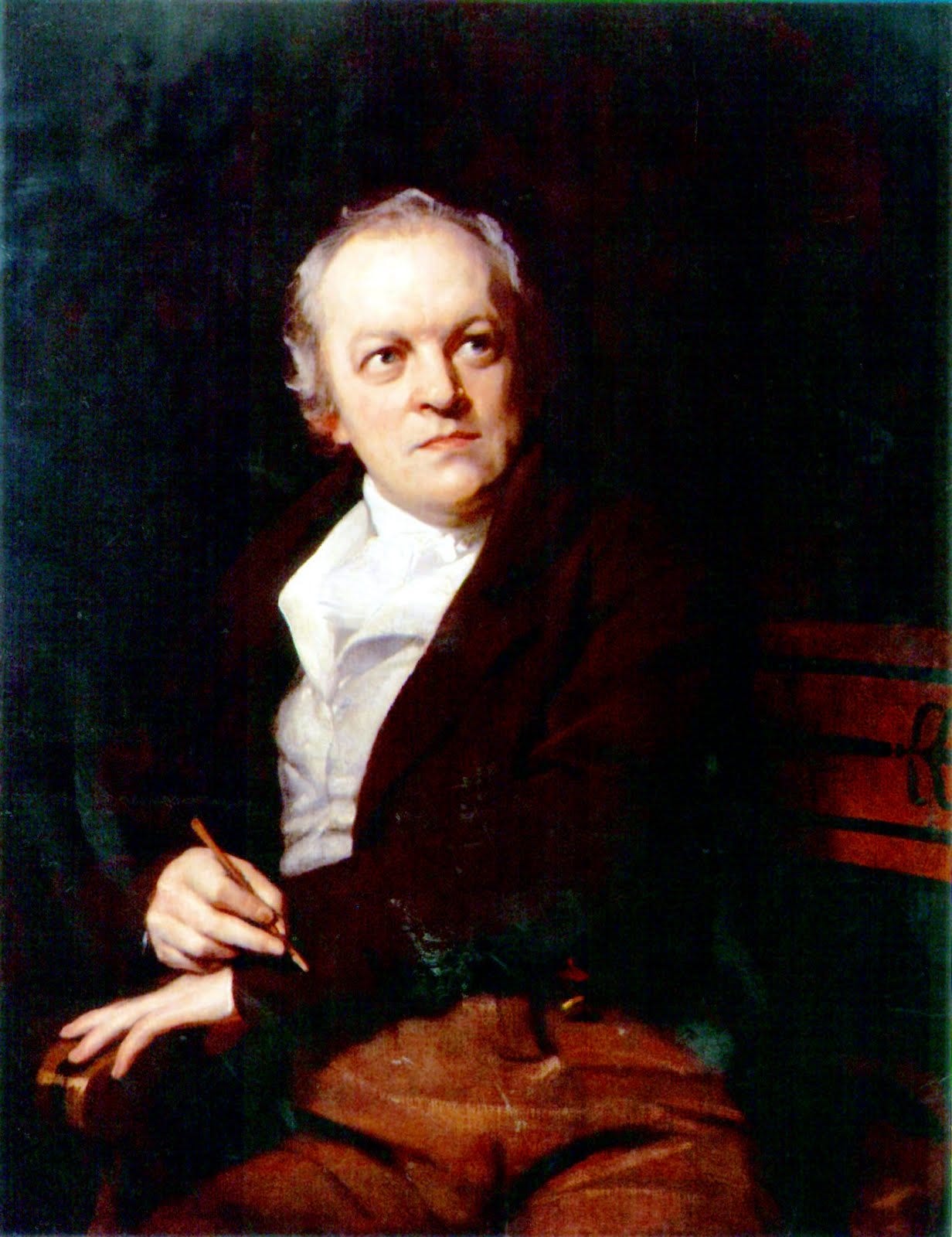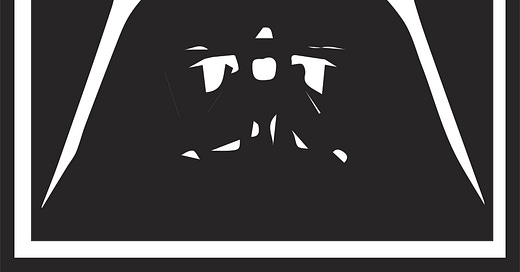Welcome to Barstool Bits, a weekly short column meant to supplement the long-form essays that appear only two or three times a month from analogy magazine proper. You can opt out of Barstool Bits by clicking on Unsubscribe at the bottom of your email and toggling off this series. If, on the other hand, you’d like to read past Bits, click here.
Despite my enthusiasm for Star Wars, it has always struck me as an insult to anyone’s intelligence how unconvincing Vader is when he calls to Luke, saying, “Come to the dark side! Join me and together we shall rule the galaxy as father and son.” Nobody believes himself evil. (Well, very few people at least.) Hitler thought he was doing the world a service ridding it of degenerate persons and races. Stalin may have enjoyed some of his wickedness, but much like Lenin, he was probably convinced of the justice of his murderous actions. In short, if no one perceives himself as evil, the Vader character makes no sense. It’s not even tempting to join him on the dark side. It’s downright silly. If it turned out that Yoda represented the true dark side. . . now, that story would be far more convincing.
My point here is that evil does not present itself as wicked because evil is not about whether an allegiance or course of action or belief system sounds bad or wrong. In fact, it will likely sound good, true, laudable, right, heroic, just and pious—but it will still be evil. The question then becomes, How do I know when my own good deeds and pious views are in fact evil?
In William Blake’s famous “The Marriage of Heaven and Hell,”1 the poet writes a series of aphorisms under the title, “Proverbs of Hell.” The title has often intrigued me because the aphorisms seem universally apt and true and therefore good. So why are they from Hell?
Always be ready to speak your mind, and a base man will avoid you.
. . .
The eagle never lost so much time, as when he submitted to learn of the crow.
Both these lines suggest a superior meeting an inferior intelligence. Who is the “base man,” after all, and who is “the crow”? Who is the one who speaks his mind, and who is “the eagle”? As many feel themselves stupid as think they’re evil. It is easy, however, to raise ourselves up and put down others; so easy in fact that each side of any given situation might jeer at the other for being a base imbecile and scavenger. It’s likely a consequence of localised consciousness. We reflexively take a side and marry ourselves to it. Or more like lash ourselves to the mast of our righteous ship. The prophet Isaiah cursed this quality: “Woe on the wise in their own eyes and self-regarding analysts.” Blake is very much aware of this problem and inserts between these two proverbs, “Every thing possible to be believ’d is an image of truth”—a hellish vision because this sort of truth that becomes “an image” is a fragment of truth. It is partly true. But images of truth have a tendency to breed idolatry. And idolatry is a form of intellectual enslavement.

“Every thing possible to be believ’d is an image of truth” - William Blake
The hellishness of this reality culminates in the final line: “Truth can never be told so as to be understood, and not be believ’d. Enough! or Too much!” So belief carries with it a psychic blight: truth entails a political commitment. It can’t be believed enough or too much. False saviours demand faith without doubt. (They can’t be believed too much.) Meanwhile, the conveyor of Truth feels his followers do not commit enough. Then there are those holding other truths. They see in their opponents an over-zealous commitment to a given truth. Those who believe differently than we do. . . believe too much.
So that’s how evil gets in according to Blake—through a seductive quality inherent to the intellectual faculty of understanding. Once something is understood, it is believed (to some extent or another). And once we are committed to a position, we forget to ask, How do I know when my own good deeds and pious views are in fact evil?
Blake exposes a consequence of this evil, sneaking it in through nature imagery, so it slips past your sceptical eye dressed up as a veritable image of Truth that appears to be fundamentally and unchangeably True and natural:
The weak in courage is strong in cunning.
The apple tree never asks the beech how he shall grow, nor the lion, the horse, how he shall take his prey.
To each his own lot and perspective? Is that the message? But again: How is this hell? In what sense?
Blake is showing up a difficulty with the desire to have everything in its proper place. (Denotatively: conservatism.) The language affirms the natural order and may seem to be simply conveying a live and let live sentiment. But while it’s at work doing that, Blake slips in a divisive, heart-hardening agent of logic, which goes something like this: To each his own gifts and weaknesses, and therefore one needn’t bother seeking advice from those of a different stripe. The ethic is not one of acceptance. It’s advice to keep to your own kind. This is how hell operates. (And the British class system… which Blake was critiquing.)
So evil’s mainspring is to be sought in our ideas of truth and belief (how we commit to “an image of truth”—an idol). Those who feel the followers of truth do not believe fiercely enough are in the believers camp (no matter how fact-based the belief); and those who grow apprehensive at the way worship of “an image of truth” operates to inspire militant puritanism are the unbelievers: sceptics, cynics, heretics, infidels, blasphemers, witches, degenerates, deplorables, denialists. . . those who say, Hey, maybe better to be a little less sure of ourselves.
If we apply a little reductive reasoning, we’re talking about believers versus unbelievers. Or if you like, idolators versus conceptualists. Those who believe, and I mean, really deeply believe, will always attempt to force some version of “salvation” (and its cousin, “safety”) or “freedom” on everyone, including on believers from other camps, and especially on those pesky unbelievers. Meanwhile, the unbelievers will always be wracking their brains to understand what inspires believers with so much destructive faith in a final and absolute revelation. To the unbeliever’s mind, the more seriously we take ourselves, our facts and dogmas, the dumber we behave because we are all Flatlanders.
What’s a Flatlander? Using paper cut-outs, Carl Sagan famously demonstrated in 1980—and you can find this here on YouTube—how a three dimensional object entering a two-dimensional space would be perceived. Taking a mackintosh apple with four prominent lumps at its base, he moistened the bottom in ink and stamped it on a sheet of paper designated as “Flatland.” This was one of the many ways an apple might be perceived in two dimensions. By analogy, we three-dimensional beings can only perceive a fraction of the totality of our universe, which may include several more dimensions beyond our perception. The rest, is mostly conjecture. Our sense of reality too, then, is largely conjecture.
The problem with believers of course is not faith per se. It is faith without doubt, which is no faith at all, but some primitive hope for absolute power and control over an otherwise chaotic and unpredictable world. Armed with having our facts straight, we are invincible and always right. Unquestioning faith—or complete and absolute certainty in our beliefs and actions—is an expression of megalomania rooted in a horror of facing our own impotence. This kind of faith without doubt is the offspring of fear. It is also the attitude expected of a soldier. It is the cornerstone of war.
Faith rooted in doubt, on the other hand, breeds humility, which is our only escape from Blake’s Hell. Logically speaking, faith needs doubt; what would be the purpose of faith if it were not required to navigate something unknown and foreboding? Faith in this sense refers to the idea that we will muddle through somehow despite the fact that we have no clue really what’s going on or what it’s all about—call it providence or luck or a mix of neither or both. With this sort of humility, we navigate carefully, aware of how often we’re wrong; aware that if we keep our eyes open, life will provide ever-new revelations; and the things we thought in the past to be true will turn out to have been only partly true. If individuals the world over adopted this attitude toward knowledge and understanding, we’d never have serious conflict.
So if I were Darth Vader, I’d be working at winning Luke’s trust in my clear sighted and infallible genius. I’d be convincing him with a great deal of irrefutable evidence the Jedi are not who they appear, but instead an evil cabal of conspiracy theorists who have the whole galaxy turned around. I’d be making him understand. I’d be conjuring an image of truth. I’d be telling him:
“Luke, one army is a tyranny; two is a compromise. The Jedi are terrorists, Luke. Look at what they did to me! I have to live in this heavy machine suit. My face is a shrivelled prune. They will destroy you too. Join ME! Join the only true Good, Luke! There is no other way.”
And let’s not forget the element of fear. It’s essential to instil fear and panic.
“Luke. Our house is on fire! If you don’t follow me, the galaxy will burn to the ground. Imagine an asteroid were hurtling toward us, Luke! The ends justify the means when it comes to averting that kind of disaster. Join me, and together we will do whatever it takes to save the world as father and son!”
Star Wars through a mirror darkly. Think about it! What if Darth Vader were in fact the good guy? Who does this elite militia called the Jedi serve but a pan-galactic Senate which in turn serves. . . whose interests exactly? Should a single senate be governing an entire galaxy? Sounds like the worst kind of imperialist tyranny to me.
Asa Boxer’s poetry has garnered several prizes and is included in various anthologies around the world. His books are The Mechanical Bird (Signal, 2007), Skullduggery (Signal, 2011), Friar Biard’s Primer to the New World (Frog Hollow Press, 2013), Etymologies(Anstruther Press, 2016), Field Notes from the Undead (Interludes Press, 2018), and The Narrow Cabinet: A Zombie Chronicle (Guernica, 2022). Boxer is also a founder of and editor at analogy magazine.
Worth remarking that I’m working with this version of the poem: https://www.gutenberg.org/files/45315/45315-h/45315-h.htm. Had I worked with my more official Oxford University Press edition of Blake: The Complete Writings (1972), I would have provided a different reading. I should add that I believe Blake did not intend each aphorism to be read as an instance of evil, but to be truths that arise from a fallen world in which good and evil mix together and can be indistinguishable.




